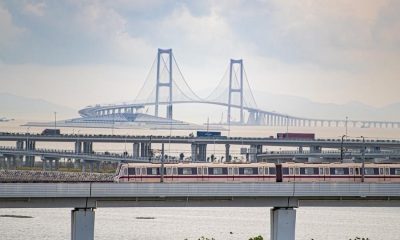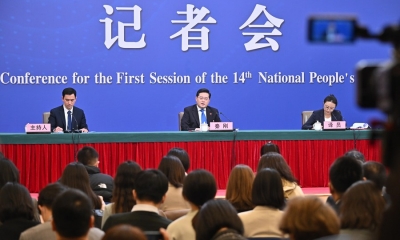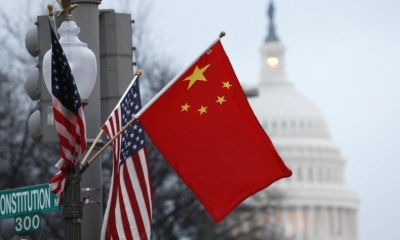From Humble Beginnings Come Great Things
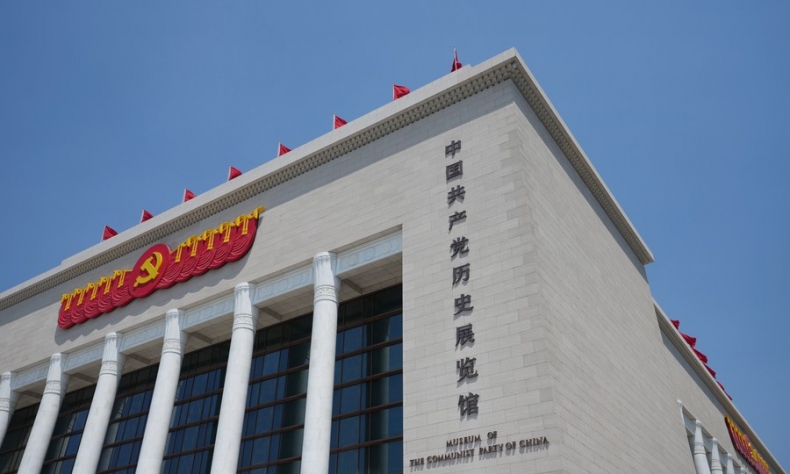
The road has often been quite arduous and posed tremendous difficulties on the path to modernization. But the Party has proven that it can–and will–persist.
The story of the founding of the Communist Party of China (CPC) in 1921 is one of humble beginnings, when China was in shambles, dominated by foreigners, semi-feudalist, impoverished and run by corrupt warlords. Meeting in a traditional Shikumen house in Shanghai, 13 men dedicated to the purpose of carrying out a Marxist-Leninist revolution designed to end imperialism within China and bring about both modernity and prosperity to the Chinese people, would change the course of China and the world forever. They believed that China had to change and that the Party was the instrument to achieve that change.
It is a story of suffering, struggle, sacrifice, heroism, mistakes, and, ultimately, economic prosperity and international prominence. It is also a compelling story that is not well known in the West.
Mission focused
Led by a group of young, idealistic and often ill-equipped revolutionaries fighting both the Japanese during World War II and the Kuomintang in the Chinese civil war, the Party endured and arose victorious. Through the tumult, poverty and national traumas of the pre-reform period, the Party persevered and emerged to reform both itself and China. Out of hardship came a determination to improve the country and restore China to preeminence in the world. The Party’s resolve would lead to China’s long-term growth and development in the post-1978 reform period.
The disciplined, mission-focused and adaptive leadership of the Party has delivered on its promise of modernization and moderate prosperity–something that the Chinese people have dreamed of for over a century. Through a century of turbulence that saw the expulsion of numerous foreign invaders, a civil war, political chaos and momentous political reforms that built one of the largest economies in the world while also lifting 700 million people out of poverty, the Party has demonstrated both its persistence and success.
The CPC has produced tremendous economic results. They’ve created a burgeoning middle-class and have massively invested in measures designed to provide social support. With successful performance comes citizen satisfaction. Western opinion surveys consistently show high levels of satisfaction and support for the CPC’s governance of the country.
The 100th anniversary of the founding of the CPC provides a great opportunity to discuss both the durability and relevance of a political party that has survived a century of turbulence and come out of it more powerful than ever. Over the past 100 years, the CPC has evolved from a small party with only a handful of members to the largest and most powerful party in the world with more than 91 million members.
Under the pragmatic leadership of the Party, China found a development path practically suited to its own national conditions. Reform and opening up created the necessary mechanisms that made the achievement of national prosperity, national rejuvenation and citizen satisfaction possible. The CPC has produced one of the greatest economic achievements in human history by lifting hundreds of millions of people out of poverty while also restoring China’s place as a powerful global power. Continuous progress toward these goals is assuring that the Chinese dream of a modern, powerful and prosperous nation will be attained on or before the centennial of the founding of the People’s Republic of China in 2049.
The Party has shown a remarkable degree of determination to adapt and recover from setbacks. If there is a lesson to be learned about the Party’s history–for both Chinese and Westerners alike–it is this: Under the leadership of the CPC, China cannot be easily defeated, nor can or should it be disengaged or isolated from the world. Minimizing or marginalizing China is at best counterproductive, and, at worst, downright foolish.
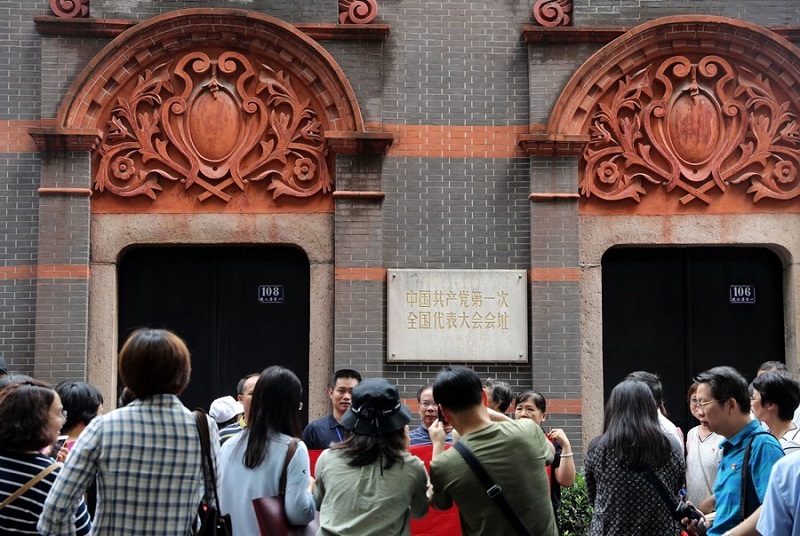
Strong resilience
One of the longest-held assumptions by Western scholars, policy makers and commentators is that the CPC’s rule is soon to end. Some have peddled this drivel for decades because it’s quite profitable and plays well with certain audiences. With all due respect, they have based their belief of a coming collapse on a flawed combination of historical comparisons, biased interpretations, ideologically tinged expectations and overly bold predictions, confidently assuming that the CPC would go the way of the Communist Party of the Soviet Union (CPSU). Year after year they make the same self-assured prediction. And year after year the CPC remains firmly in place and popular among the Chinese people. At the risk of upsetting those who regularly predict the end of the Party for either fun and/or profit, I don’t think that it’s too far of a stretch to let them know the following: The CPC will remain in power now and for the foreseeable future. Simply stated, the CPC is not the CPSU and China is not the Soviet Union.
The CPC’s strong resilience was born in revolution and war. Decades of fighting toughened the Party, making it more flexible and thereby able to mobilize, respond and adapt to rapid changes. In contrast to the CPSU and Eastern European communist parties, the CPC has regularly demonstrated a notable level of pragmatism and adaptability in policy solutions. When necessary, the CPC has engaged in mass mobilization campaigns and created short-term organizations or committees to deal with policy challenges.
The CPC’s experience and history are quite different from that of the former Soviet Union or Eastern Europe. Unlike the CPSU or other parties, the CPC’s style of mass mobilization developed during the long years of the revolutionary period regularly involved ordinary people in the Party’s operations, even if those ordinary people were not necessarily CPC members themselves.
It’s important to understand the role that mass mobilization continues to play within the Party and its governance style. It’s a hallmark of the CPC’s approach to governing the country and profoundly differs from the Soviet Union or other communist nations. From natural disasters to health emergencies to extreme poverty eradication, the Party has regularly used this method to successfully mobilize civil society. Nowhere was this approach more critical than in the fight against COVID-19, where Wuhan rapidly engaged in a mass mobilization to lock down the city and protect the rest of the nation from a massive spread of the virus. The success in containing COVID-19 is emblematic of the CPC’s willingness to incorporate ordinary people into the Party’s policy implementation efforts and helps explain the durability and resilience of the CPC.
China today is governed by a party that was forged in revolution and war, an experienced and capable party that has guided the country from poverty and weakness to prosperity and strength. Under the leadership of the CPC, China is now an economic powerhouse and poised to become a fully self-sufficient and secure military and geopolitical power by the mid-21st Century.
Anniversaries and birthdays are a great time to recall where we’ve been and where we hope to go. The CPC is no different in this regard. The CPC’s centenary is a time to remember both its struggles and humble beginnings. From the early days that saw threats to its very existence on several occasions due to attacks from the Kuomintang and the Japanese invasion to an earth-shaking revolution to its leadership transforming China into a global economic power with a growing middle class, the Party has shown a remarkable ability to survive, adapt and effectively govern a country of more than 1.4 billion people.
The Party has faced numerous challenges along the road to transforming China into a modern socialist country. The road has often been quite arduous and posed tremendous difficulties on the path to modernization. But the Party has proven that it can–and will–persist.
 Facebook
Facebook
 Twitter
Twitter
 Linkedin
Linkedin
 Google +
Google +




